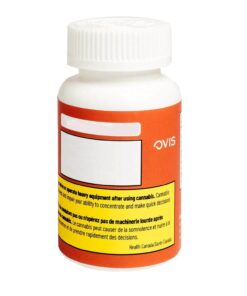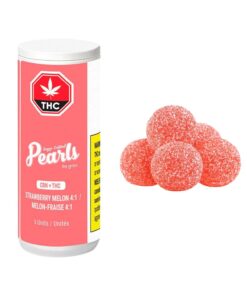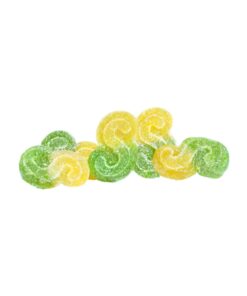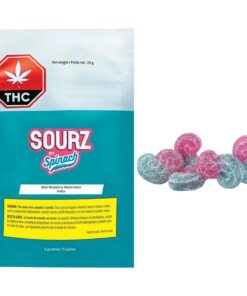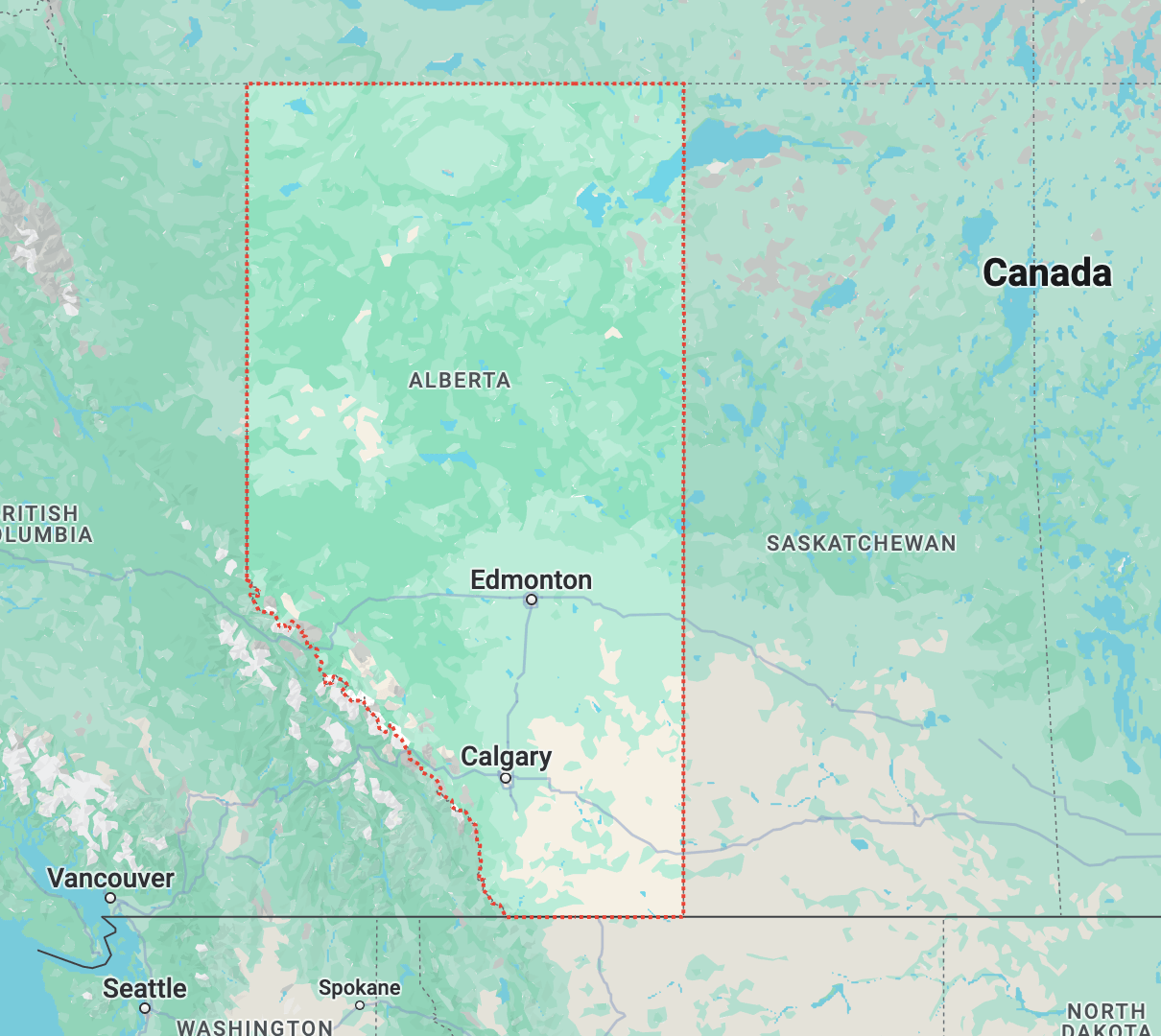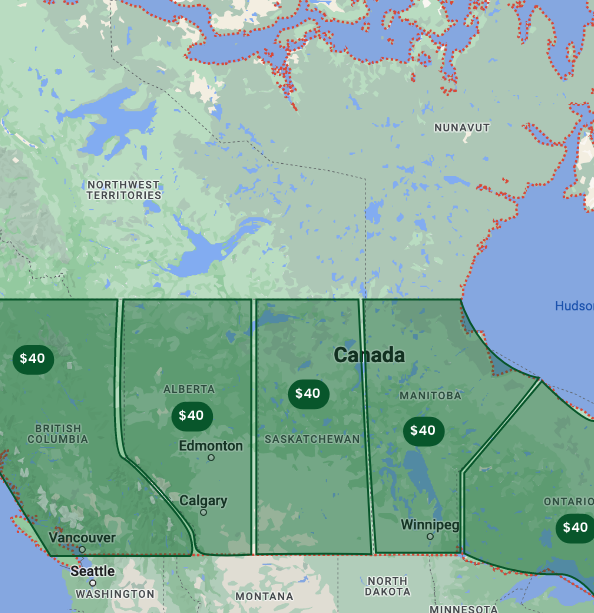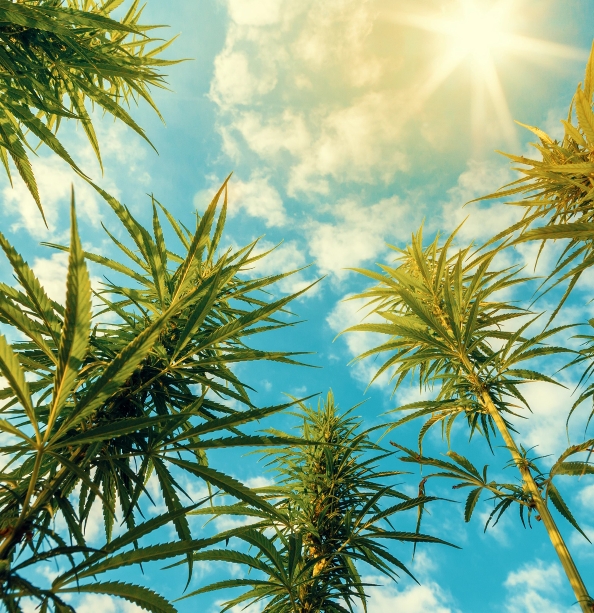What are minor cannabinoids, and why are they important?
You’ve probably already heard of the cannabis components THC and CBD, but did you know that there are more than 100 naturally occurring cannabinoids in the cannabis plant? While major cannabinoids, like THC and CBD, exist in large quantities, minor cannabinoids only form a small percentage of the plant’s profile.
What are cannabinoids?
Cannabinoids are chemical compounds found in the cannabis plant that interact with the human body’s endocannabinoid system. While there is still a lot of research to be done, we know that humans have cannabinoid receptors known as CB1 (mostly in the brain) and CB2 (mostly found in the immune system), which influences one’s appetite, mood and pain responses.
The entourage effect
The entourage effect refers to the idea that these minor cannabinoids work together with major cannabinoids like THC and CBD, as well as terpenes, to produce a more enhanced effect than if each compound was used separately.
In this analogy, THC and CBD are the star players, but there are also minor cannabinoids, like CBG and CBN, acting as supporting players. These minor cannabinoids might not get as much attention, but they play essential roles in how the team (or cannabis) performs. They can influence things like mood, pain relief, and relaxation, working alongside THC and CBD to enhance the overall experience.
CBG – Cannabigerol
CBGA, often referred to as the “mother cannabinoid” is produced in the plant’s trichomes and precursor of all other cannabinoids, including CBG, THC and CBD. CBG is a non-acidic form of CBGA, and is transformed into CBG when exposed to light and heat.
CBG, is the starting compound in the cannabis plant, young cannabis plants are typically used to source the cannabinoid because when the plant is fully grown, there isn’t much CBG left.
Like other cannabinoids, CBG interacts with cannabinoid receptors in the body, primarily CB1 and CB2 receptors. While research is still in the preliminary stages, studies have shown that CBG can have a variety of positive effects on the body. Unlike THC, CBG isn’t psychoactive and when used alone, won’t leave you feeling “high”.
Potential Health Benefits of CBG
Anti-inflammatory: CBG may help reduce inflammation in the body. This could be beneficial for conditions such as arthritis, inflammatory bowel disease, and other inflammatory disorders.
Pain relief: CBG may have analgesic properties, meaning it could help alleviate pain. This could make it useful for managing chronic pain conditions.
Neuroprotective: There is some evidence to suggest that CBG has neuroprotective properties, meaning it may help protect the brain from damage and degeneration. This could have implications for conditions like Alzheimer’s disease and Parkinson’s disease.
Antibacterial and antimicrobial: CBG has shown promise in fighting bacterial infections. It may have antibacterial and antimicrobial effects, which could be useful in the development of new antibiotics or treatments for bacterial infections.
Appetite stimulation: Some studies suggest that CBG may stimulate appetite, which could be beneficial for individuals with conditions that cause appetite loss, such as cancer.
Glaucoma treatment: There is some research indicating that CBG may help reduce intraocular pressure, which could be beneficial for individuals with glaucoma.
Mood regulation: While more research is needed, some studies suggest that CBG may have potential effects on mood regulation and anxiety relief.
Shop CBG Products
CBN – Cannabinol
CBN is a natural compound that develops as THC breaks down over time due to exposure to light and oxygen. As THC oxidizes, it converts into CBN. This is why higher amounts of CBN can be found in aged, dry cannabis. Have you ever smoked some old leftover bud, and found it makes you sleepier than usual? That’s the CBN at work! CBN can be known as the “weaker version of THC” because it can still produce mildly psychoactive effects.
Potential Health Benefits of CBN:
Sedative Properties: CBN is often associated with sedative effects, which may help promote relaxation and aid in sleep. Some research suggests that consuming cannabis products with higher levels of CBN could potentially improve sleep quality, making it a potential option for individuals with insomnia or other sleep disorders
Anti-inflammatory: Inflammation is a common cause of muscle and joint pain, such as in conditions like arthritis. CBN, like other cannabinoids, has shown anti-inflammatory effects in preclinical studies. By reducing inflammation in affected tissues, CBN may help alleviate pain and improve mobility
Muscle Relaxation: CBN may have muscle-relaxing properties, which could help alleviate tension and stiffness in muscles surrounding joints. By promoting muscle relaxation, CBN may reduce the strain and discomfort associated with muscle spasms and tightness
Antibacterial Properties: CBN has demonstrated antibacterial properties in some studies. It may be effective against certain types of bacteria, potentially helping to fight infections.
CBC – Cannabichromene
CBC is another minor cannabinoid and while non-psychoactive, it still has several effects on the human body. First, it won’t give you a high because of its inability to bind to the CB1 receptors. However, it has shown the potential to help alleviate pain perception and increase the release of the body’s natural endocannabinoids. Research on CBC is still in its early stages, but studies suggest that it may have anti-inflammatory, analgesic, neuroprotective, and antidepressant properties, among other potential benefits.
Potential Health Benefits of CBC:
Pain Reliever: Like other cannabinoids, CBC may have analgesic properties, meaning it could help alleviate pain. It may interact with the body’s endocannabinoid system to modulate pain perception and reduce discomfort.
Anti-anxiety & Anti-depression: CBC has shown to work as an antidepressant in animal studies. It may interact with neurotransmitter systems involved in mood regulation, potentially offering relief for depression and other mood disorders.
Anti-Inflammation: CBC has demonstrated anti-inflammatory effects in preclinical studies. It may help reduce inflammation in the body, which is associated with conditions such as arthritis, inflammatory bowel disease (IBD), and neuroinflammatory disorders.
Shop CBC Products
THC-V – Tetrahydrocannabivarin
THC-V is a lesser known cannabinoid, considered to have mildly psychoactive effects. However they may be different from THC, THC-V is believed to have a more uplifting and stimulating effect, and some users have reported increased focus and creativity.
THC-V has gained attention for its potential therapeutic properties and has been studied for various health benefits, including appetite suppression, blood sugar regulation, neuroprotection, and potentially managing conditions such as obesity, diabetes, epilepsy.
Potential Health Benefits of THC-V:
Appetite Suppression & Weight Loss: Unlike THC, which is largely responsible for “the munchies,” and is used to stimulate appetite, THC-V may actually dull your appetite and help with weight loss by blocking the receptor that triggers the “hunger hormone”. This is why THC-V can sometimes be known as the “Diet Weed”
Blood Sugar Regulation: Some research suggests that THC-V may have antidiabetic properties. It may help regulate blood sugar levels by improving insulin sensitivity and reducing insulin resistance. This could be beneficial for individuals with type 2 diabetes or metabolic syndrome.
Neuroprotective Effects: THC-V has shown potential neuroprotective effects in animal studies. It may help protect brain cells from damage and degeneration, offering potential therapeutic benefits for neurodegenerative diseases such as Alzheimer’s and Parkinson’s.
Bone Health: There is emerging evidence to suggest that THC-V may play a role in promoting bone health and stimulating bone growth. This could have implications for conditions like osteoporosis and bone fractures.
Shop THC-V Products
CBG for giggles – uplifted, euphoric, and focused
CBN for night time – relaxed, sedative, muscle relaxation
CBC for calm – anxiety relief, anti inflammatory, pain relief
THC-V – appetite suppression, alert, focused
Explore Our Selection: Ready to experience the potential benefits of minor cannabinoids? Browse our selection of products to find the perfect option for you!
Stay Informed: Keep up to date with the latest advancements in the market by joining our Best Buds Club! Don’t miss out on exclusive offers, educational content, and more!
Frequently Asked Questions
No, CBG is a non intoxicating cannabinoid. Unlike THC, CBG typically won’t give you the feeling of being “high”. While CBG interacts with the endocannabinoid system, its effects are more focused on potential therapeutic benefits rather than altering one’s mental state.
Yes, CBN is known to have sedative effects, which can potentially make you feel drowsy or sleepy. Research suggests that CBN interacts with the body’s endocannabinoid system in a way that promotes relaxation and may contribute to improved sleep quality.
The potential for feeling drowsy the next morning after consuming CBN can vary depending on factors such as dosage, individual sensitivity, and tolerance. Starting with a lower dose and monitoring its effects can help reduce the risk of excessive drowsiness the next morning.
Research indicates that THC-V may potentially reduce one’s appetite by blocking the CB1 cannabinoid receptor, which controls hunger and metabolism. Both animal and limited human studies suggest that THC-V could lower food intake and suppress appetite.
CBG and CBN are offered in various forms like capsules, oils, and drops. They are also present in smaller amounts in cannabis edibles, beverages, and vapes. When deciding how to consume CBG or CBN, consider factors such as desired effects, convenience, and personal preferences.
While CBC and THCV are still relatively new to the cannabis market, they are available in edible and vape formats. Hopefully soon we can see CBC and THC-V being offered in additional formats.
When consuming minor cannabinoids like CBG, CBN, CBC and THCV, It’s advisable to start with a low dose and gradually increase it until you find the optimal dose for you. Factors such as your weight, metabolism, and individual response to cannabinoids can all affect the appropriate dosage. Dosing can range anywhere from 2.5mg-100 mg per dose.
At Bud Bar! We carry a wide variety of products containing minor cannabinoids; such as edibles, beverages, capsules, oils and vaporizers.
How long does it take for oils and capsules to start showing noticeable effects, and how often should it be used?
We are not doctors
“Disclaimer: The information provided in this blog post is for informational purposes only and should not be construed as medical advice. We are not medical professionals, and the content shared here is not intended to diagnose, treat, cure, or prevent any disease or medical condition. It is essential to seek advice from a qualified healthcare professional or physician before making any decisions regarding your health or starting any new treatment or regimen. Any questions or concerns regarding medical issues should be directed to a licensed healthcare provider or medical professional.”

